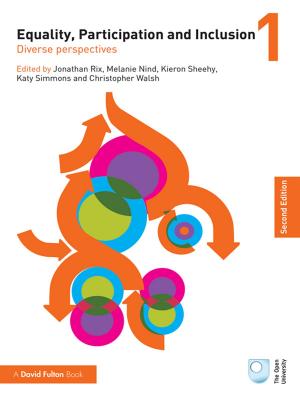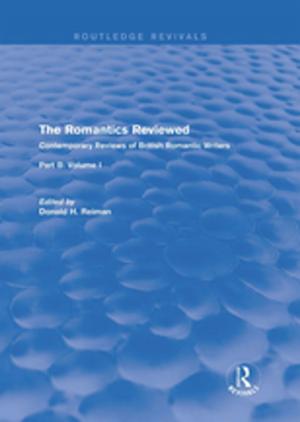Tango And The Political Economy Of Passion
Nonfiction, Social & Cultural Studies, Social Science, Sociology| Author: | Marta Savigliano | ISBN: | 9780429976636 |
| Publisher: | Taylor and Francis | Publication: | February 6, 2018 |
| Imprint: | Routledge | Language: | English |
| Author: | Marta Savigliano |
| ISBN: | 9780429976636 |
| Publisher: | Taylor and Francis |
| Publication: | February 6, 2018 |
| Imprint: | Routledge |
| Language: | English |
What is tango? Dance, music, and lyrics of course, but also a philosophy, a strategy, a commodity, even a disease. This book explores the politics of tango, tracing tango's travels from the brothels of Buenos Aires to the cabarets of Paris and the shako dansu clubs of Tokyo. The author is an Argentinean political theorist and a dance professor at the University of California at Riverside. She uses her ?tango tongue? to tell interwoven tales of sexuality, gender, race, class, and national identity. Along the way she unravels relations between machismo and colonialism, postmodernism and patriarchy, exoticism and commodification. In the end she arrives at a discourse on decolonization as intellectual ?unlearning.?Marta Savigliano's voice is highly personal and political. Her account is at once about the exoticization of tango and about her own fate as a Third World woman intellectual. A few sentences from the preface are indicative: ?Tango is my womb and my tongue, a trench where I can shelter and resist the colonial invitations to '`'universalism,'? a stubborn fatalist mood when technocrats and theorists offer optimistic and seriously revised versions of '`'alternatives' for the Third World, an opportunistic metaphor to talk about myself and my stories as a success' of the civilization-development-colonization of Am ca Latina, and a strategy to figure out through the history of the tango a hooked-up story of people like myself. Tango is my changing, resourceful source of identity. And because I am where I am?outside?tango hurts and comforts me: '`'Tango is a sad thought that can be danced.'?Savigliano employs the tools of ethnography, history, body-movement analysis, and political economy. Well illustrated with drawings and photos dating back to the 1880s, this book is highly readable, entertaining, and provocative. It is sure to be recognized as an important contribution in the fields of cultural studies, performance studies, decolonization, and women-of-color feminism.
What is tango? Dance, music, and lyrics of course, but also a philosophy, a strategy, a commodity, even a disease. This book explores the politics of tango, tracing tango's travels from the brothels of Buenos Aires to the cabarets of Paris and the shako dansu clubs of Tokyo. The author is an Argentinean political theorist and a dance professor at the University of California at Riverside. She uses her ?tango tongue? to tell interwoven tales of sexuality, gender, race, class, and national identity. Along the way she unravels relations between machismo and colonialism, postmodernism and patriarchy, exoticism and commodification. In the end she arrives at a discourse on decolonization as intellectual ?unlearning.?Marta Savigliano's voice is highly personal and political. Her account is at once about the exoticization of tango and about her own fate as a Third World woman intellectual. A few sentences from the preface are indicative: ?Tango is my womb and my tongue, a trench where I can shelter and resist the colonial invitations to '`'universalism,'? a stubborn fatalist mood when technocrats and theorists offer optimistic and seriously revised versions of '`'alternatives' for the Third World, an opportunistic metaphor to talk about myself and my stories as a success' of the civilization-development-colonization of Am ca Latina, and a strategy to figure out through the history of the tango a hooked-up story of people like myself. Tango is my changing, resourceful source of identity. And because I am where I am?outside?tango hurts and comforts me: '`'Tango is a sad thought that can be danced.'?Savigliano employs the tools of ethnography, history, body-movement analysis, and political economy. Well illustrated with drawings and photos dating back to the 1880s, this book is highly readable, entertaining, and provocative. It is sure to be recognized as an important contribution in the fields of cultural studies, performance studies, decolonization, and women-of-color feminism.















